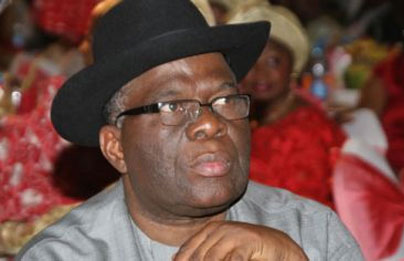At least six people have been killed in explosions at two offices of a major Nigerian newspaper, witnesses say.
Three people were killed in a blast in Abuja, with another three killed at the paper's offices in the northern city of Kaduna.
Witnesses say at least one was a suicide bombing, but officials have not confirmed this.
No-one has said it carried out the blasts although the Islamist group Boko Haram has staged similar attacks.
The blasts at the offices of ThisDay newspaper, a leading daily, happened around 11:30 GMT.
Several witnesses, including the chairman of ThisDay's
editorial board, said the blast in the capital was the result of a
suicide attack.
"The suicide bomber came in a jeep," Olusegun Adeniyi told reporters at the scene in Abuja.
"[Security guards] opened the gate for them. The guy drove in
through the gate and rammed into the building and exploded," Mr Adeniyi
said.
Continue reading the main story
“Start Quote
The guy drove in through the gate and rammed into the building and exploded”
Olusegun Adeniyi
ThisDay's editorial board chairman
However, a spokesperson for
Nigeria's National Emergency Management Agency earlier said the Abuja
blast appeared to be caused by a bomb planted inside the building.
Parts of the newspaper's office, including the printing press, have been completely destroyed.
Suspect held
The Kaduna explosion happened outside a complex housing a number of newspapers, including ThisDay.
A suspect has been arrested and is thought to be a member of the Boko Haram group, news agency AFP quoted police as saying.
The BBC's Abdullahi Kaura Abubakar in Kaduna says that another, smaller explosion occurred in the city just before 16:00 GMT.
Witnesses told our correspondent an explosive device was
thrown by the passenger of a motor bike at the junction of a major
highway.
Two people were taken to hospital, our correspondent says.
Footage filmed by the Nigerian paper the Daily Trust, showed a
scene of confusion in Abuja as people sifted through the rubble while a
number of small fires burned.
Police and paramilitary forces cordoned off both offices
while emergency workers evacuated the injured and removed the bodies of
those who died.
"The ceiling of our building collapsed on to our computers
because of the force of the blast," an Abuja office worker in the
building next door to ThisDay told the BBC's Focus on Africa programme.
A ThisDay employee, Samson Oliver, was dozing after a night
shift when the blast occurred: "When I woke up with shock and fear, I
saw everywhere was so dark, something like smoke everywhere, and I ran
out and saw that it was a bomb explosion."
Boko Haram - whose name means "Western education is
forbidden" - wants to establish Islamic law in Nigeria and has launched a
series of deadly attacks across the country, including the capital, in
the past 19 months.
Last month the group warned journalists not to misrepresent its views.
SOURCE:
http://www.bbc.co.uk/news/world-africa-17856362























